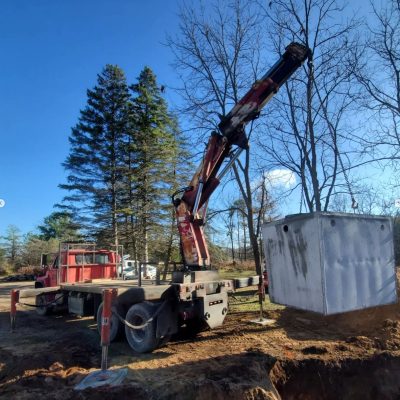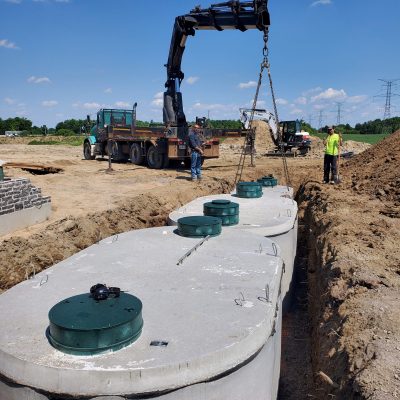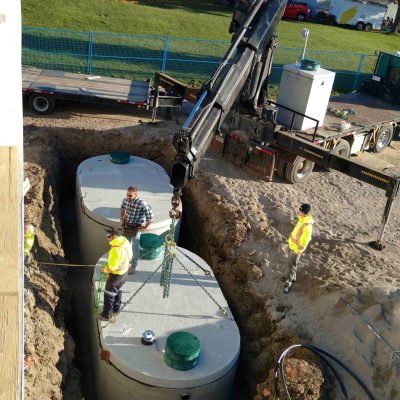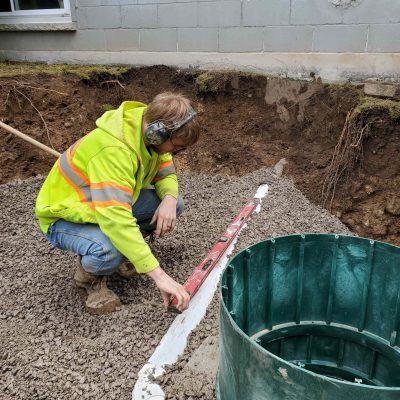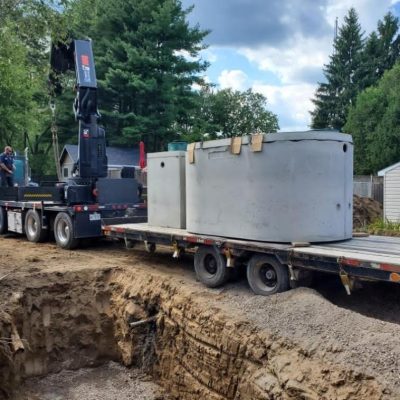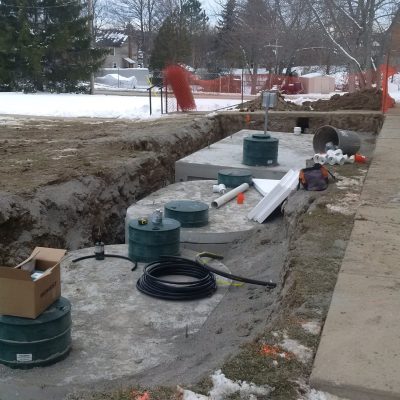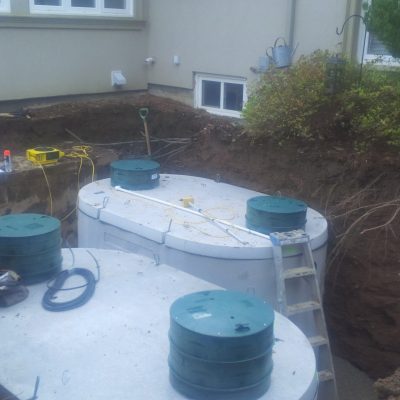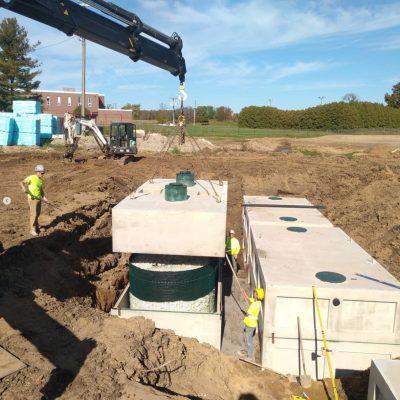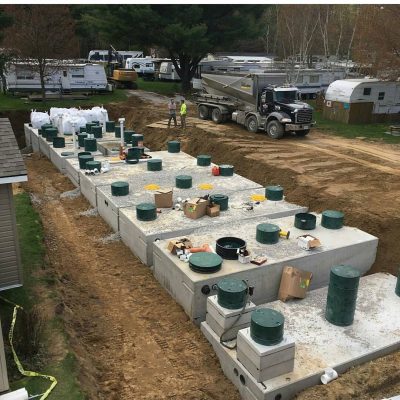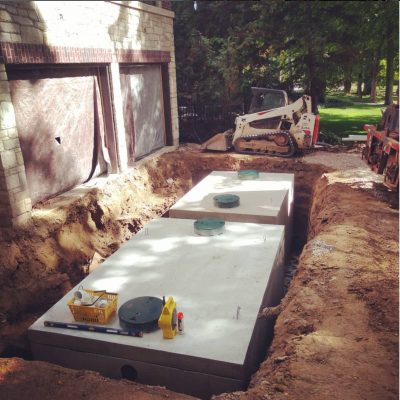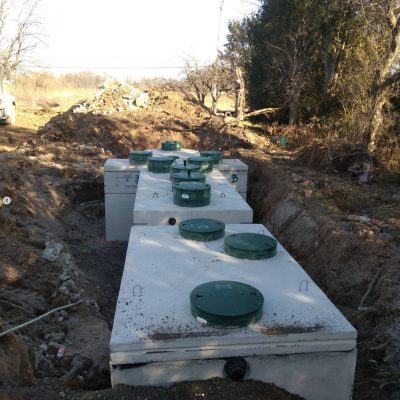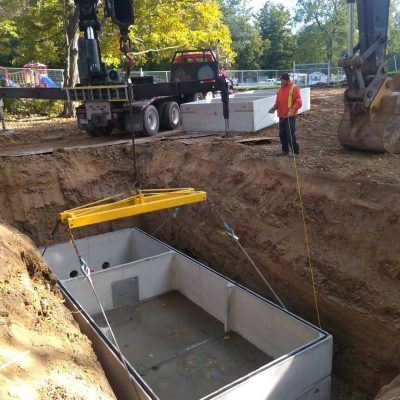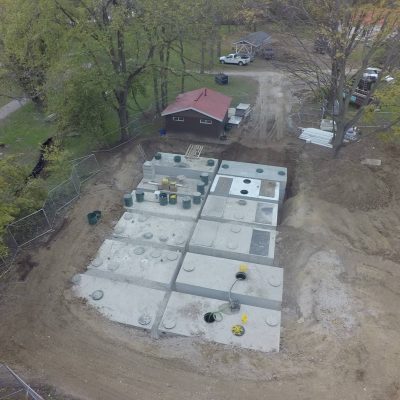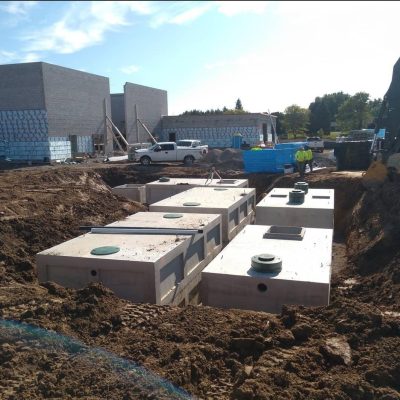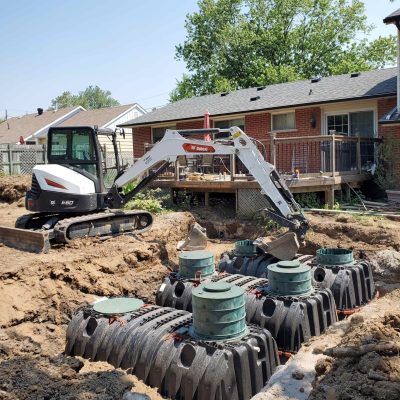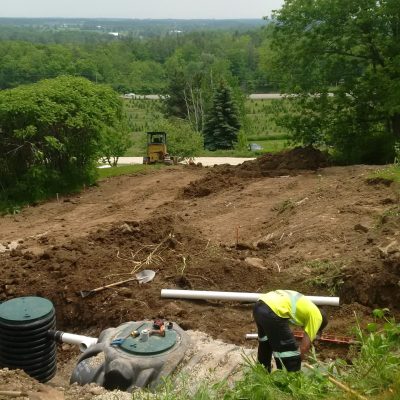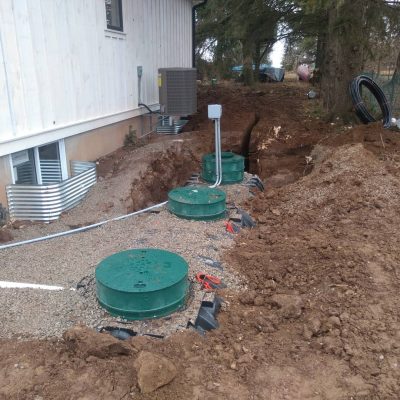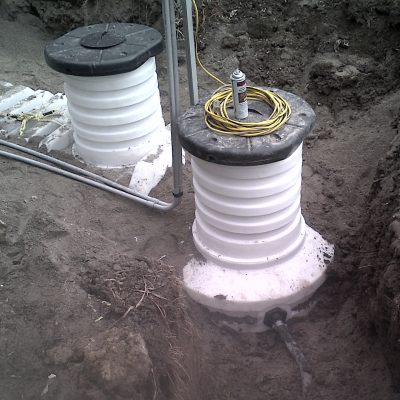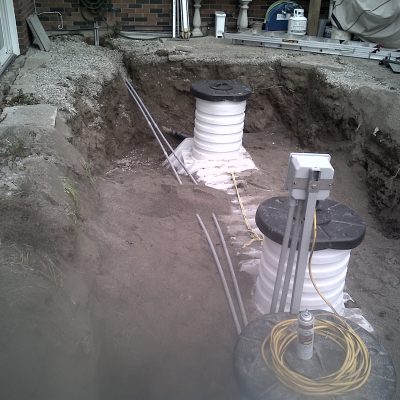Plastic and precast concrete septic tanks are commonly used and widely available in Ontario, with many professionals considering these materials reliable and effective solutions for on-site wastewater management. Both options, when installed correctly and maintained according to Ontario Building Code, can provide long-term, code-compliant service.
Precast Concrete Septic Tanks
If job site access is not an issue, precast concrete tanks are often viewed as a cost-effective, durable, and environmentally friendly choice. Their inherent strength and weight help them remain stable underground, reducing the risk of shifting during soil movement or extreme weather. In general, well-installed precast tanks can withstand decades of use, minimizing the need for frequent replacements.
Additional Consideration: Precast concrete tanks are heavy and typically require machinery for transportation and installation. This factor can increase initial setup costs if the site is difficult to access. However, once in place, these tanks usually deliver a low-maintenance, long-term solution.
Plastic Septic Tanks
In situations where access to the property is more limited—such as remote areas with narrow pathways or environmentally sensitive locations—lightweight plastic tanks provide a practical and permanent solution. Their reduced weight simplifies transportation and installation, often making them more cost-effective to place than concrete tanks in challenging conditions.
Additional Consideration: While plastic tanks are durable and can serve as a long-term solution, they rely on proper bedding and backfill methods to prevent deformation or damage. Regular inspections and maintenance help ensure their ongoing performance and longevity.
Additional Insights
Regardless of the tank material chosen, adherence to OBC Part 8 standards and proper installation practices are essential. Both concrete and plastic tanks should meet the appropriate certifications (such as CSA B66) and be installed by qualified professionals. Soil conditions, local disposal regulations, and anticipated household wastewater volume also influence the best choice for your property.
Note that beyond concrete and plastic, alternative tank materials and advanced treatment units exist, but they may be less prevalent or more specialized. Always consider local factors, including ground conditions, seasonal impacts, and municipal regulations, when choosing a septic tank to ensure optimal system performance over time.
Contact Us for More Information
If you have further questions or wish to discuss the best septic tank solution for your specific property, contact us today. Our knowledgeable staff can provide guidance on compliance, cost considerations, and maintenance tips, helping you make an informed decision that supports the long-term health and functionality of your septic system.
